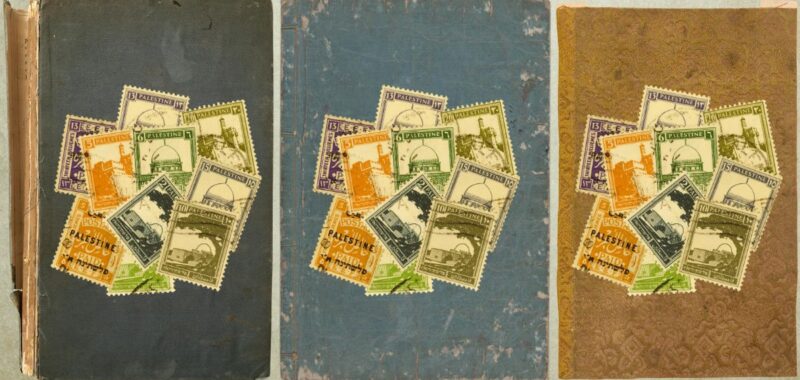There are a very many great books about Palestine and by Palestinians, and to condense them into a single essential list is a difficult task. Some books recently celebrated in the anglosphere, either written in English or translated into English (among other languages), include: Rashid Khalidi’s The Hundred Years’ War on Palestine, Adania Shibli’s Minor Detail, Fady Joudah’s […], Susan Abulhawa’s Against The Loveless World, Mohammed El Kurd’s Rifqa, Ibtisam Azem’s The Book of Disappearance, and Mosab Abu Toha’s Things You May Find Hidden in My Ear. The below is a very incomplete list of a few other, mostly older, classic titles that have meant a lot to me.
Article continues after advertisement
*
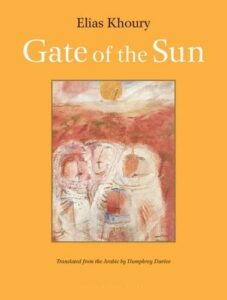
Elias Khoury, The Gate of the Sun
(1998)
Elias Khoury was a giant of Arabic literature, as a novelist, a critic and a thinker, and his recent passing is a huge loss. He wrote prolifically on Palestine with intelligence and imagination. His novels set there are densely intertextual, and the most well-known is probably Bab al-Shams or The Gate of the Sun. I realize, writing this, that when I think of what happened in the Sabra and Shatila refugee camps in 1982, when the Christian Phalangist militias massacred the Palestinian refugees with the support of the Israeli army, I recall harrowing passages from this novel. The English language translation of Khoury’s novel Star of the Sea, Part Two of his “Children of the Ghetto” series, will be published in December by Archipelago.
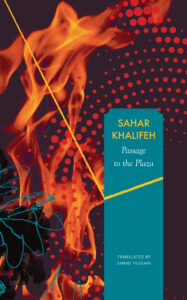
Sahar Khalifeh, The Passage to the Plaza
(1990)
A funny and serious book both: Khalifeh takes aim at the madnesses of Nablus society, especially the lives of women, including those on society’s margins—prostitutes, midwives, and other working women—through the lens of the first intifada.
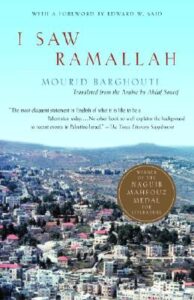
Mourid Barghouti, I Saw Ramallah
(1997)
A spare and precise poet’s memoir about returning to Palestine after the Oslo Accords that succeeded the first intifada. One of my favourite lines, here in translation by the Egyptian novelist Ahdaf Soueif, describes a moment of Barghouti’s despair at seeing his village, Deir Ghassaneh, much changed after years of military occupation: “Buildings are not the only things destroyed by time. The imagination of the poet is preordained for destruction. Suddenly my imagination collapses like a building.”

Assorted writings of Walid Daqqa
Walid Daqqa was a Palestinian political prisoner who died from medical neglect in Israeli prison where he had remained for 38 years. His writings are far-sighted and extraordinary. He wrote incisively about the Palestinian condition in his book Sahr al-Wa’ee, or Searing Consciousness, in which he maps the ways the Israeli prison system robs Palestinians of community and selfhood in the same way that the occupation regime divides and deprives the Palestinian population at large. In his text “Parallel Time” he describes how these prisons seek to destroy the humanity of the prisoner, that is, a prisoner’s capacity to love.
I worry all the time that I might stop feeling shocked and moved by the pain of other people. Any people. I worry that I will no longer be moved by scenes of injustice, any injustice. This is for me a daily preoccupation, by which I gauge my strength and resilience. The capacity to feel the pain of other peoples, the pain of other humanities, is at the heart of civilization. The expression of the mental aspect of a man is his will, the essence of his physicality is work, and the essence of his spirituality is feeling. And to feel the pain of fellow human beings, the pain of other humanities, is the essence of human civilization.
This is a translation by the poet Dalia Taha.
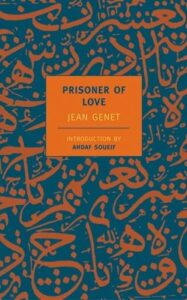
Jean Genet, Prisoner of Love
(1986)
A hallucinatory chronicle of the time Genet spent in the early 1970s with the Palestinian fida’yin in Jordan before Black September and the relocation of the P.L.O. to Beirut. He intersperses his account of the Palestinian fighters with recollections of the time he spent with the Black Panthers in Detroit. This is a crazy recursive work, which Said called “a seismographic reading, drawing and exposing the fault lines that a largely normal surface had hidden.”
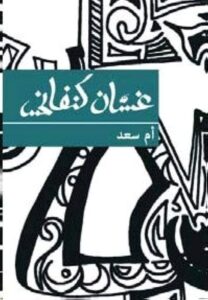
Ghassan Kanafani, Umm Saad
(1969)
Umm Saad is probably my favorite of Kanafani’s works. Unfortunately it has still not been translated into English (although, who knows, maybe a translation is underway—we can hope!) The narrator, a Kanafani-like intellectual figure, listens to the stories of his cousin Umm Saad, a woman living in one of the refugee camps in Lebanon. Memorably, Umm Saad first appears in the text rising out of the “womb” of the earth, as though her body is made from its soil; she is an archetype of the Palestinian resistance tradition, the mother of the fighter who is herself fighter—and, also, a mother to everyone. Umm Saad is a peak example of Kanafani’s committed literature, in which the intellectual-writer recedes in the face of the story of the masses, the story of others, the story of a woman.
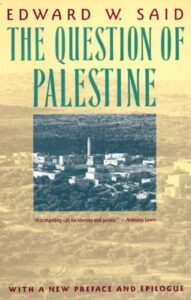
Edward Said, The Question of Palestine
(1979)
Since I felt I should put a Said on here … The Question of Palestine arguably marked a turning point in Said’s writing career towards a clarity of expression regarding the Palestinian struggle for freedom, and most specifically regarding the hypocrisy of Western societies. The essay “Zionism From the Standpoints of its Victims” is vital reading for the present moment. The book is being republished in the UK this year by Fitzcarraldo.
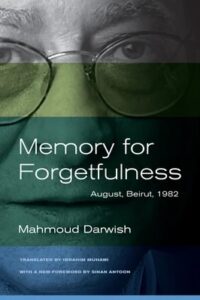
Mahmoud Darwish, Memory for Forgetfulness: August, Beirut 1982
(1987)
A series of extended prose poems narrating Darwish’s experience of the 1982 Israeli invasion of Beirut. A beautiful poetic record of this brutal military assault, meditating on questions of exile and war, and the relationships between memorialization, collective memory, and forgetting.
_______________________
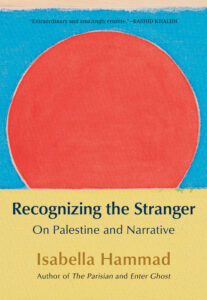
Isabella’s Hammad’s Recognizing the Stranger: On Palestine and Narrative is available now from Grove Press.

